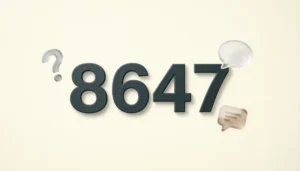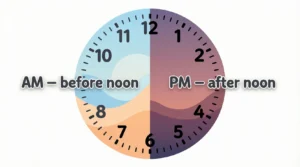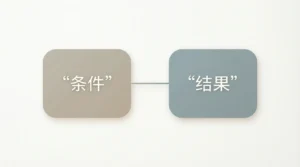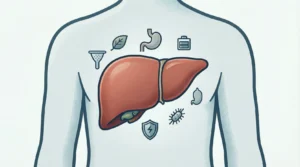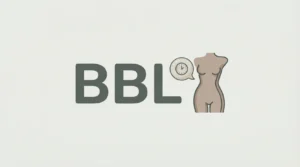Goodbyes can be bittersweet, whether it’s an ex, a friend, or someone leaving a situation. When someone says, “Thank you for letting me go,” it can carry different emotions—gratitude, closure, regret, or even relief. How you respond depends on your feelings and the nature of the relationship.
“Struggling with how to respond when someone says, ‘Thank you for letting me go’? Here are thoughtful and graceful replies to handle the situation with confidence.”
Do you want to keep it heartfelt? Play it cool? Add a touch of humor? Below are 40 responses to help you navigate these moments with grace, confidence, and even a bit of wit.
1. “I only let go because I want what’s best for you.” 💙
Scenario: They express gratitude for the breakup or ending.
Reply: “I only let go because I want what’s best for you.”
Impact: Shows maturity and that you genuinely cared for their happiness.
2. “Letting go doesn’t mean I stopped caring.” 🤍
Scenario: They assume you moved on easily.
Reply: “Letting go doesn’t mean I stopped caring.”
Impact: Adds emotional depth, hinting that you still value what was shared.
3. “Some people are meant to pass through, not stay.” 🌿
Scenario: They thank you but seem unsure about the decision.
Reply: “Some people are meant to pass through, not stay.”
Impact: A poetic way to acknowledge that not all connections are forever.
4. “You needed freedom, and I respected that.” 🎈
Scenario: They appreciate you not holding them back.
Reply: “You needed freedom, and I respected that.”
Impact: Shows that you’re secure and supportive, even after parting ways.
5. “No worries, sometimes goodbye is a new beginning.” 🌅
Scenario: They thank you in a hopeful tone.
Reply: “No worries, sometimes goodbye is a new beginning.”
Impact: Encourages optimism while keeping it light.
6. “I just hope you find what you’re looking for.” 🌎
Scenario: They’re moving on to something new.
Reply: “I just hope you find what you’re looking for.”
Impact: A thoughtful and selfless response.
7. “We both deserve a fresh start.” 🍃
Scenario: They’re relieved after the split.
Reply: “We both deserve a fresh start.”
Impact: Affirms that moving on is the right decision.
8. “I’d rather let go than hold onto something broken.” 🥀
Scenario: They feel guilty about leaving.
Reply: “I’d rather let go than hold onto something broken.”
Impact: Strong and empowering, showing self-respect.
9. “No need to thank me. It was the right thing to do.” 🤷♂️
Scenario: They appreciate your maturity.
Reply: “No need to thank me. It was the right thing to do.”
Impact: Shows emotional intelligence and grace.
10. “Some chapters just have to end.” 📖
Scenario: They reflect on the past.
Reply: “Some chapters just have to end.”
Impact: A calm way to accept change.
11. “I let go, but that doesn’t mean I forget.” 🖤
Scenario: They assume you’ve completely moved on.
Reply: “I let go, but that doesn’t mean I forget.”
Impact: A sentimental response that adds depth.
12. “You’ll always be a part of my story.” 📜
Scenario: They’re feeling nostalgic.
Reply: “You’ll always be a part of my story.”
Impact: Keeps things positive and respectful.
13. “It wasn’t easy, but it was necessary.” 🎭
Scenario: They recognize how hard it must have been.
Reply: “It wasn’t easy, but it was necessary.”
Impact: Honest and mature, showing personal growth.
14. “Sometimes, love is about letting go.” 💔
Scenario: They question if you ever cared.
Reply: “Sometimes, love is about letting go.”
Impact: A deep, heartfelt response.
15. “You don’t have to thank me. We both needed this.” 🤝
Scenario: They appreciate your understanding.
Reply: “You don’t have to thank me. We both needed this.”
Impact: Keeps the conversation balanced and fair.
16. “Letting go doesn’t mean losing. It means growing.” 🌱
Scenario: They worry about what’s lost.
Reply: “Letting go doesn’t mean losing. It means growing.”
Impact: Encourages them to see the positive side.
17. “It was time for both of us to move forward.” 🏃♂️
Scenario: They reflect on the timing.
Reply: “It was time for both of us to move forward.”
Impact: Shows wisdom and emotional awareness.
18. “Don’t worry, I’ll be just fine.” 😉
Scenario: They think you’ll struggle.
Reply: “Don’t worry, I’ll be just fine.”
Impact: Displays confidence and strength.
19. “You don’t owe me anything. Just be happy.” 😊
Scenario: They feel like they owe you.
Reply: “You don’t owe me anything. Just be happy.”
Impact: Shows kindness and selflessness.
20. “If you’re at peace, then so am I.” ☮️
Scenario: They seem relieved after the breakup.
Reply: “If you’re at peace, then so am I.”
Impact: Ends things on a harmonious note.
21. “I let go, but that doesn’t mean I stopped wishing you well.” ✨
Scenario: They seem unsure whether you still care.
Reply: “I let go, but that doesn’t mean I stopped wishing you well.”
Impact: Shows you still have good intentions, even if you’re moving on.
22. “I just did what was best for both of us.” 🤷♀️
Scenario: They acknowledge your maturity.
Reply: “I just did what was best for both of us.”
Impact: A logical and calm response that keeps emotions in check.
23. “No problem, I figured you’d be happier without me.” 😉
Scenario: They seem genuinely happy after parting ways.
Reply: “No problem, I figured you’d be happier without me.”
Impact: A mix of confidence and self-awareness with a touch of humor.
24. “Letting go was easy, staying was the hard part.” 😌
Scenario: They assume you struggled with the decision.
Reply: “Letting go was easy, staying was the hard part.”
Impact: A deep and reflective response that hints at past difficulties.
25. “Life moves forward, and so should we.” 🚶♂️
Scenario: They seem nostalgic about the past.
Reply: “Life moves forward, and so should we.”
Impact: Encourages both parties to embrace the future.
26. “I just followed the path that made the most sense.” 🛤️
Scenario: They wonder how you came to this decision.
Reply: “I just followed the path that made the most sense.”
Impact: Shows clarity and rational thinking.
27. “If it was meant to last, it wouldn’t have ended.” 🕰️
Scenario: They ask if you think it could have worked out.
Reply: “If it was meant to last, it wouldn’t have ended.”
Impact: A practical response that reinforces acceptance.
28. “No worries, we’re both better off this way.” 🌈
Scenario: They seem relieved.
Reply: “No worries, we’re both better off this way.”
Impact: Keeps the energy positive and forward-thinking.
29. “You’ll be fine, and so will I.” 💪
Scenario: They express concerns about the future.
Reply: “You’ll be fine, and so will I.”
Impact: Shows confidence in both of you moving on successfully.
30. “Closure is a gift, and I’m giving it to us both.” 🎁
Scenario: They seem to be seeking reassurance.
Reply: “Closure is a gift, and I’m giving it to us both.”
Impact: A mature and wise response that signals emotional closure.
31. “I’d rather walk away with respect than stay and regret it.” 🚪
Scenario: They question if you regret the decision.
Reply: “I’d rather walk away with respect than stay and regret it.”
Impact: Reinforces self-worth and maturity.
32. “We were great for a moment, but moments don’t last forever.” ⏳
Scenario: They mention the good times you had.
Reply: “We were great for a moment, but moments don’t last forever.”
Impact: A poetic way to acknowledge the past while accepting the present.
33. “Thank you for making it easy to let go.” 😏
Scenario: They had difficulty in the relationship.
Reply: “Thank you for making it easy to let go.”
Impact: A witty, slightly savage response.
34. “We both deserve a love that doesn’t require letting go.” 💞
Scenario: They express regret.
Reply: “We both deserve a love that doesn’t require letting go.”
Impact: A deep response that shows understanding and growth.
35. “I just cleared space for something even better.” 🌟
Scenario: They wonder if you’re sad about the breakup.
Reply: “I just cleared space for something even better.”
Impact: Confident and optimistic, showing you’re looking forward.
36. “No hard feelings—just new beginnings.” 🎉
Scenario: They hope there’s no resentment.
Reply: “No hard feelings—just new beginnings.”
Impact: A lighthearted way to leave things on a good note.
37. “I guess I’ll just have to find a new favorite person now.” 😉
Scenario: They joke about leaving.
Reply: “I guess I’ll just have to find a new favorite person now.”
Impact: A playful yet bittersweet way to respond.
38. “It was nice while it lasted.” ☕
Scenario: They reflect on the relationship fondly.
Reply: “It was nice while it lasted.”
Impact: A calm and neutral way to acknowledge the past.
39. “I let go, but I still appreciate the memories.” 🎞️
Scenario: They wonder if you regret anything.
Reply: “I let go, but I still appreciate the memories.”
Impact: A sentimental yet mature response.
40. “Your chapter in my story is over, but I wish you well in yours.” 📚
Scenario: They ask if you’ll still remember them.
Reply: “Your chapter in my story is over, but I wish you well in yours.”
Impact: A poetic and respectful way to part ways.
FAQs
What does “Thank you for letting me go” mean?
It usually expresses gratitude after a breakup, job resignation, or any situation where someone is given the freedom to leave.
How should I respond to “Thank you for letting me go”?
You can reply with kindness, closure, or neutrality, depending on your relationship and feelings.
Is it okay to ignore this message?
Yes, if responding isn’t necessary or you need space, ignoring is an option.
What’s a polite way to acknowledge this message?
You can say, “I wish you the best too” or “I respect your decision.”
Should I apologize when replying?
Only if you feel it’s necessary; otherwise, a simple acknowledgment is enough.
How can I respond if I still have feelings?
A heartfelt reply like “I understand, but I’ll miss you” can show your emotions.
What’s a professional way to respond in a work setting?
You can say, “I appreciate your contributions, and I wish you success ahead.”
Can my response help with emotional closure?
Yes, a thoughtful reply can provide closure for both parties.
Should I respond sarcastically or rudely?
It’s best to keep your response mature and respectful to avoid unnecessary conflict.
What if I regret letting them go?
You can express your feelings honestly, but be prepared for their reaction.

Welcome to ReplyResponses.com, your go-to hub for quick, witty, and clever replies for every situation! Whether you’re looking to spice up your chats, craft the perfect comeback, or make your messages stand out, we’ve got you covered. From funny one-liners to smart responses, our platform helps you communicate with confidence and flair. Get ready to never run out of words again—because every conversation deserves the perfect reply!


